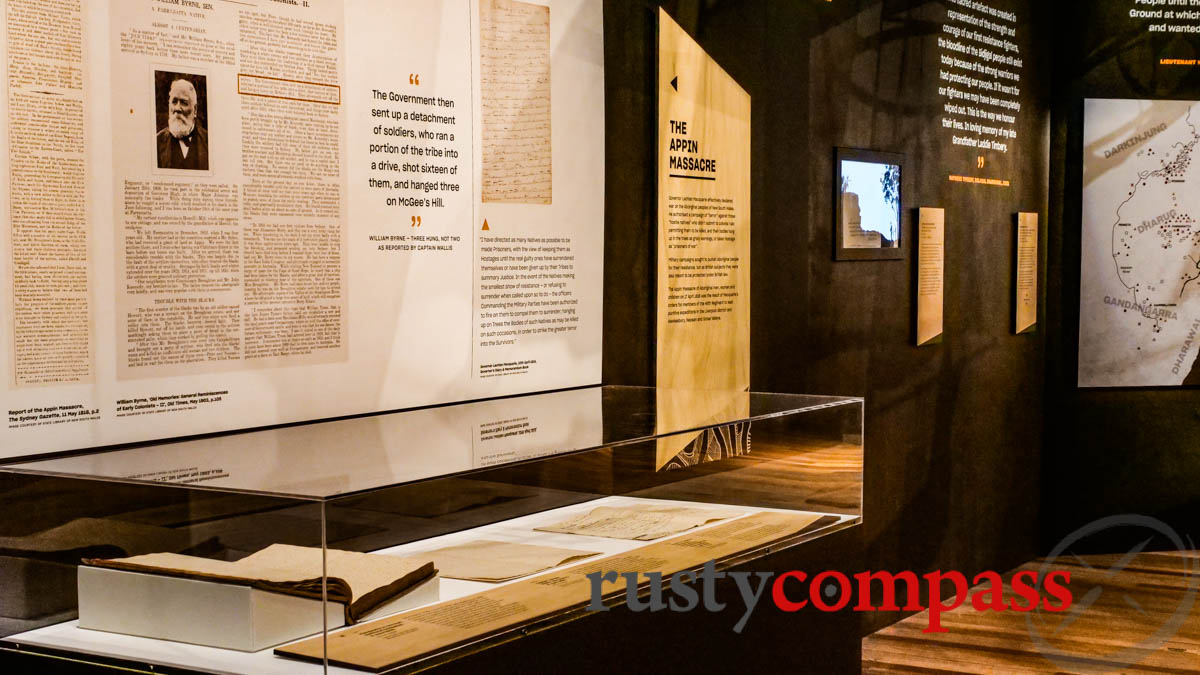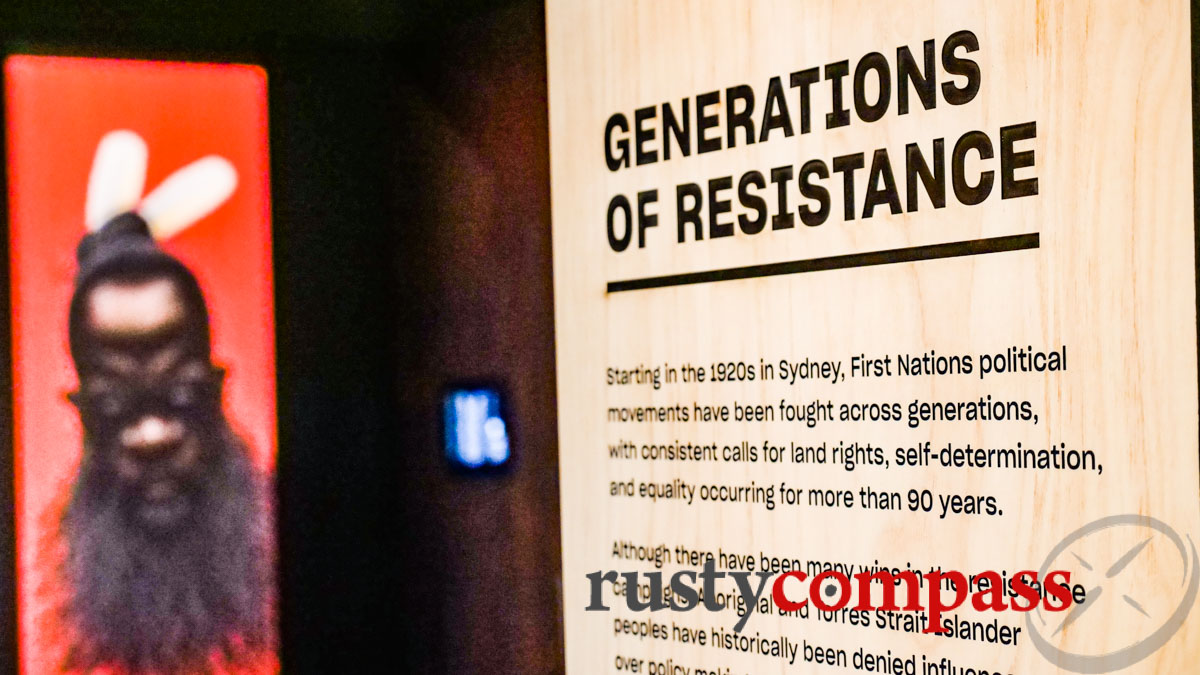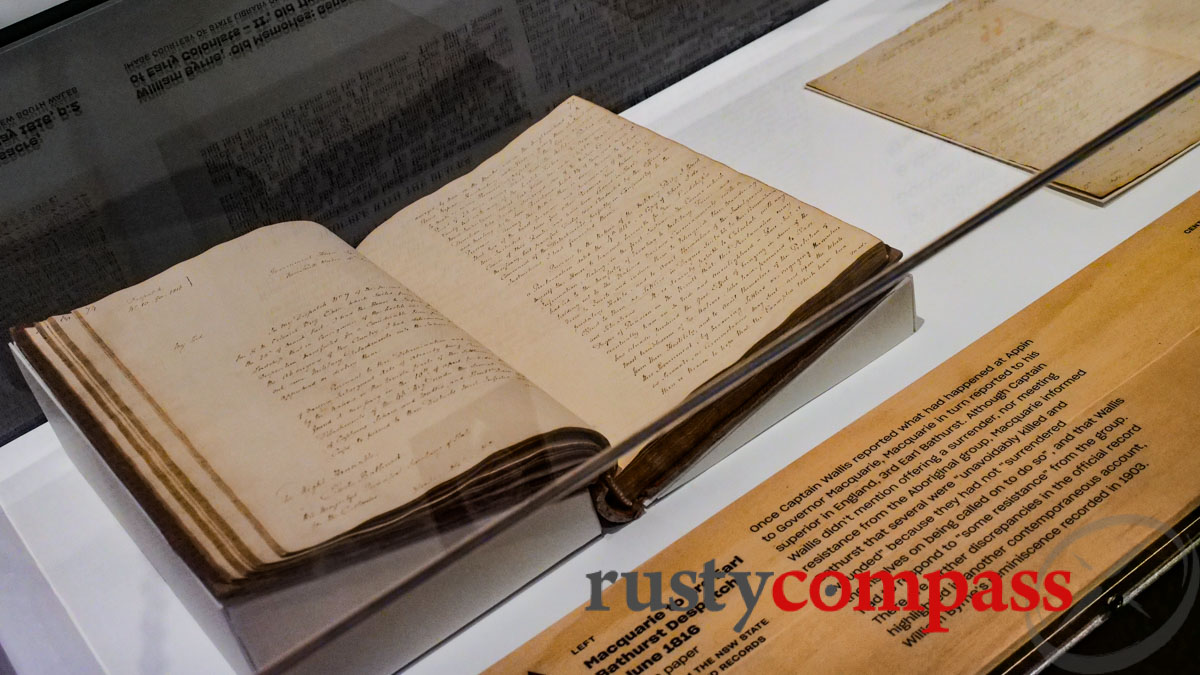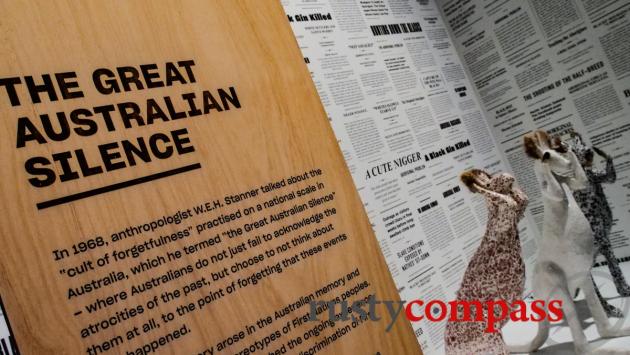My substitute for international travel during the past 18 months has been throwing myself head first at getting to know Australia and Sydney properly again. I was raised in Sydney and I studied Australian history at Sydney University in the 80s. In the early 90s, my work and interests switched to Asia and I moved to Vietnam.
After almost three decades away, in March 2020 international travel suddenly stopped and I was stranded in Sydney. If you have to be stranded anywhere, Sydney is a pretty good place for it to happen. I had an unexpected opportunity to give my Sydney and Australia awareness a refresh and an upgrade. I was properly home, long term, for the first time in decades.
Getting immersed in all things Australia and Sydney has been a great pandemic project. It's been a nice distraction from the angst of watching our Vietnam tourism and hospitality businesses implode, and all the other nasty stuff going on.

Photo: Mark Bowyer Unsettled exhibition - Australian Museum, Sydney

Photo: Mark Bowyer Unsettled exhibition - Australian Museum, Sydney

Photo: Mark Bowyer Governor Macquarie's notes on the Appin Massacre
As Rusty Compass and Old Compass Travel are now active in Sydney, it's been a professional project too.
Last week I went to a recently launched exhibition at the Australian Museum. It's called Unsettled and it's a fresh look at Australia's post-invasion history, told and curated by First Nations people. It's superbly done.
It made me reflect on how I'd learned about colonisation and dispossession at school and at university in the 1980s.
Back then, as I recall, there was a background awareness of the injustice of colonisation. It was very much in the background. There were few stories, people, or events backing up the awareness. Unsettled adds names, places, documents and events to the history of colonisation and dispossession.
1992 was the year before I left Australia. It was a big year in First Nations affairs.
The High Court's historic Mabo decision recognised Indigenous traditional Native Title for the first time.
Before 1992, the law upheld that, prior to colonisation, the Australian continent belonged to nobody. It was terra nullius and ripe for the taking. According to that thinking, all that was needed was a white guy to plant a flag somewhere and claim it. That's how the Australian penal colony came about - an issue addressed in Unsettled.
After Mabo, Australians had to process the moral and legal absurdity of terra nullius. It was too much for some. The backlash against the Mabo decision gave us a sense of the forces that had previously shaped the dispossession and colonial thinking. They're forces still in play. Unsettling words like dispossession and First Nations were yet to enter the mainstream conversation.
Later in 1992, then Prime Minister Paul Keating, gave his Redfern address. It was another milestone. I was living in Redfern at the time and I fondly recall how moved my father was by Keating's words. He reflected on them in diaries I still have.
It's worth revisiting some lines from Keating's speech.
"In truth, we cannot confidently say that we have succeeded as we would
like to have succeeded if we have not managed to extend opportunity and care,
dignity and hope to the indigenous people of Australia - the Aboriginal and Torres
Strait Island people.
This is a fundamental test of our social goals and our national will: our ability to
say to ourselves and the rest of the world that Australia is a first rate social
democracy, that we are what we should be - truly the land of the fair go and the
better chance."
It's interesting to consider how much progress we've made three decades on from Mabo and the Redfern speech? It would be interesting to ask Paul Keating how far he thinks we've come?
Unsettled represents real progress - at least in truth-telling. Even in the progressive times of Mabo and the Redfern speech in the early 90s, I doubt there would have been an appetite for the candour of Unsettled. It's a wholly new historical perspective. Something is changing in Australia. Historians like Henry Reynolds have been moving us in this direction for decades. A recent ABC poll confirmed that a majority of Australians now support changing the date of Australia Day from January 26. The celebration of the National Day on 26 January is opposed by First Nations people who consider the day as "invasion day".
Friends from abroad have often observed to me how odd it is that Australia has no First Nations Museum, very few monuments or even explanatory plaques telling Indigenous stories. From where I sit, foreign visitors have tended to be more interested in First Nations history and culture than non-Indigenous Australians. That may finally be changing.
The Australian Museum is a powerful place to host the Unsettled exhibition. It's Australia's oldest museum and closely tied up with our colonial past. Museum director Kim McKay described Unsettled as one of the most important exhibitions in the museum's long history.
There are lots of other interesting exhibits to check out at The Australian Museum when you're there.
Unsettled represents more progress in our gradual understanding of our past and who we are. It's informative and visually captivating. Unsettled is free and running at the Australian Museum and has been extended till January 2022.





There are no comments yet.